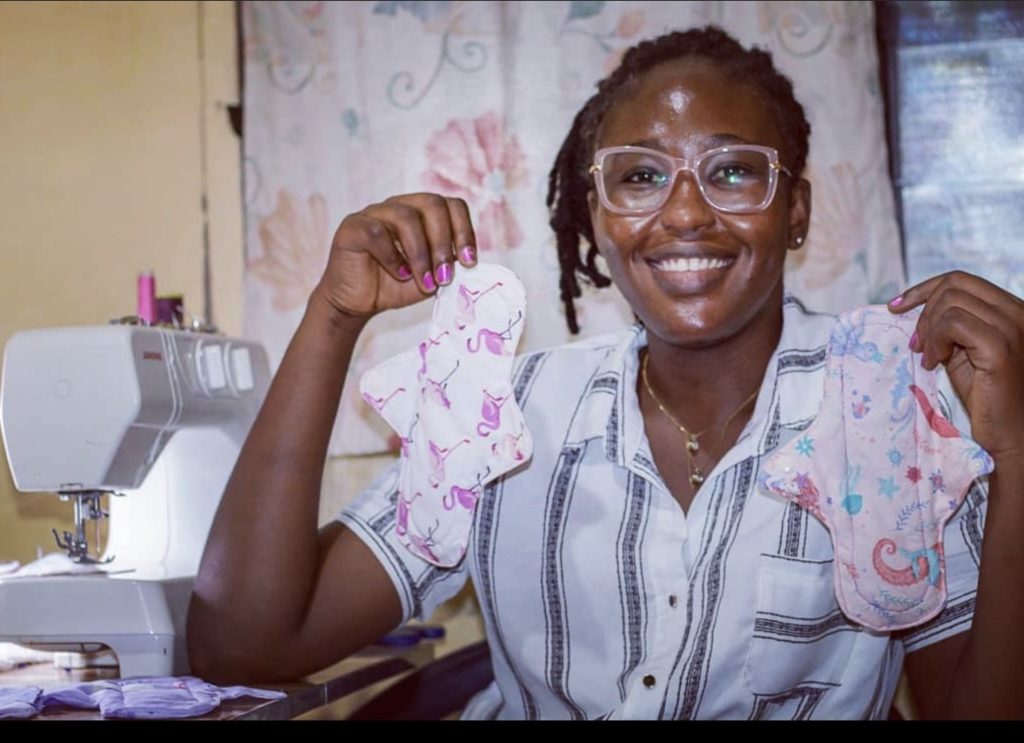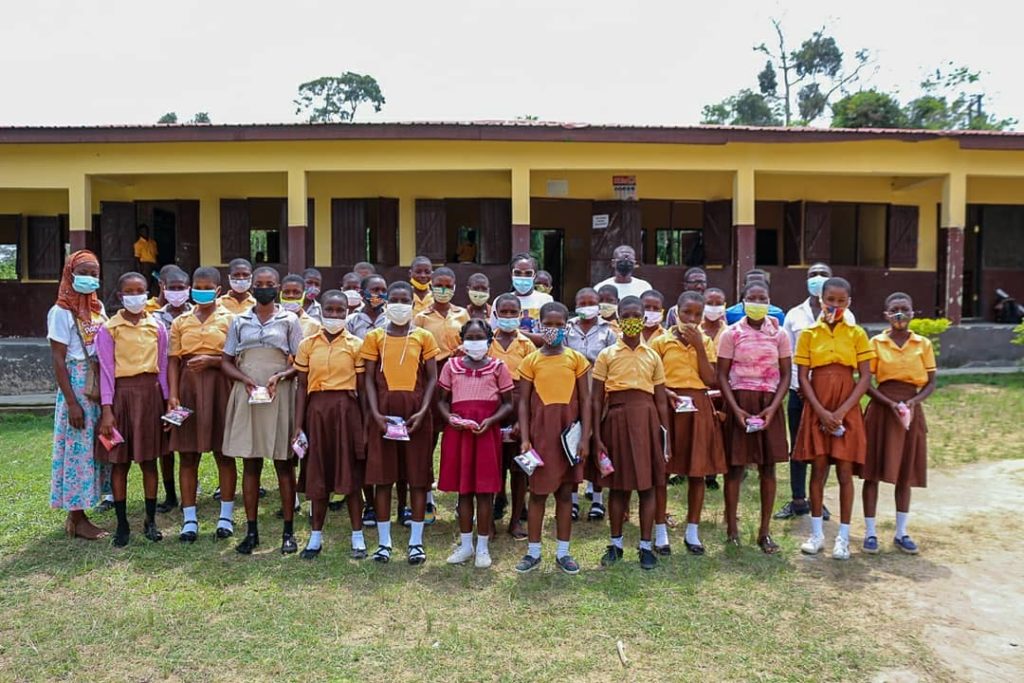The innovative cloth sanitary pad that can change lives of girls, women in Ghana

Menstruation is a natural phenomenon, but cultural and political factors make it only the woman and girl’s burden. Menstruation has been mystified, commercialized and used as tools of oppression in many societies even today.
And as females in most societies face many challenges, including gender discrimination, they also have to deal with the mysteries and misconceptions that a natural occurrence like menstruation comes with, even though all gender are beneficiaries of menstruation. Menstruation is a sign often, of fertility and all gender are products of fertility.
Research has established that, young girls in rural and urban communities dread to attend school during that crucial time of the month. The situation is compounded by young boys who ignorantly abuse girls who mistakenly stain their uniforms. Even though items of menstrual hygiene are available, cost is often a prohibitive factor for many and they are unable to access.
But one entrepreneur has introduced an innovation in the sanitary pad sector that has the propensity to have a long lasting positive impact on women and girls.
Nanayaa Afrakuma Amoako Baffoe is the founder of Grooming Girls Network, a nonprofit organization. Her innovation is aimed at contributing meaningfully towards menstrual hygiene by supplying sanitary pads and backing it with menstrual hygiene education.
As determined as she is, her aim is to end period poverty in rural Ghana.
Speaking to ghanabusinessnews.com in an interview, she said the state must also intervene to “remove any form of tax on sanitary pad products and raw materials,” adding, “it’s our goal to fight period poverty, increase menstrual knowledge and eradicate period myth.”
Adding her voice to the call on government to waive the tax on menstrual pads, Able Delali, a pharmacist who advocates for female reproductive health rights suggests that, “A more permanent approach would be the government waiving the 12.5 per cent VAT and 20 per cent import duty taxes imposed on these essential yet considered luxury items. This would reduce the cost and hence make them affordable.”
Delali also noted that government should give local manufacturers tax waivers, because locally manufactured sanitary products are more expensive than imported ones due to the taxes slapped on them.
“The Government can also invest in a local manufacturer as part of the 1 District 1 Factory initiative,” she added.
Baffoe says in the cause of her interaction with young girls, she discovered that, a piece of cloth used by girls during menstruation is discomforting and humiliating anytime they stained themselves in class. This has become the major factor for absenteeism.
According to Delali, inaccessibility of these products also prevents girls from going to school. This would affect their academic output, their self-worth and esteem, she added.
Baffoe also noted that access to sanitary pads remain a luxury for many young girls who can’t afford, thereby forcing them to turn to young men who prey on them for sexual favours in return for money.
The average price of a pack of sanitary pads sold on the open market is GH¢40 ($7) which sums up to GH¢960 ($168) in a matter of two years. Depending on how heavy the menstrual flow is, some young ladies use two packs which translate into about GH¢2,000 which can afford a standard laptop computer for studies.
Grooming Girls Network in collaboration with Needbe Foundation started their project a year ago, inspired by Baffoe’s personal story of how she missed school on several occasions during her first menstruation.

“I was once a victim of period poverty. I missed school on several occasions during my period because my mother couldn’t afford to buy me sanitary pad for the first two months when I started menstruating” she said.
“We started this project last year providing girls with disposable pads but we realized it was not sustainable because it was cost intensive,” she indicated.
This, she said ignited the process of a thorough research which resulted in the production of what they call the “Obaa Cloth Pad”.
The team made up of ten members, in partnership with Needbe Foundation; hope to produce the reusable cloth pad in commercial quantity to supply the African continent in a quest to see every girl child in school.
She indicated that, current production is hovering around 500 pieces a month. The project she said will see an upscale should there be support from government or any benevolent organization. “If we have financial assistance, we can immediately increase production to 15,000-20,000 a month. We hope to sell one for GH¢40 which will last the user for two years making a savings of about 96 per cent on the purchase of disposable pads within the same period.
The Sustainable Development Goal 4 emphasized the need for inclusive education. “Ensuring inclusive and equitable quality education and promote lifelong learning opportunities for all.” It would be a failure on the part of any country in the 21st century to leave its girl child behind.
While the cloth pad or reusable is always available, saves money and environmentally friendly, it does have some disadvantages.
According to Delali, some of the disadvantages of reusable pads include conducive conditions for genitourinary tract infections.
“Women have a higher risk of contracting these infections because they have shorter urethras compared to men. When not washed and treated properly with clean water and soap and dried under the sun these risk factors are increased,” she said.
Menstrual issues should occupy everyone, because it affects everyone. The society has a responsibility to ensure that the girl child succeeds, and providing adequate menstrual hygiene is part of that responsibility.
By Emmanuel K. Dogbevi & Fred Duhoe
Copyright ©2021 by NewsBridge Africa
All rights reserved. This article or any portion thereof may not be reproduced or used in any manner whatsoever without the express written permission of the publisher except for the use of brief quotations in reviews.
